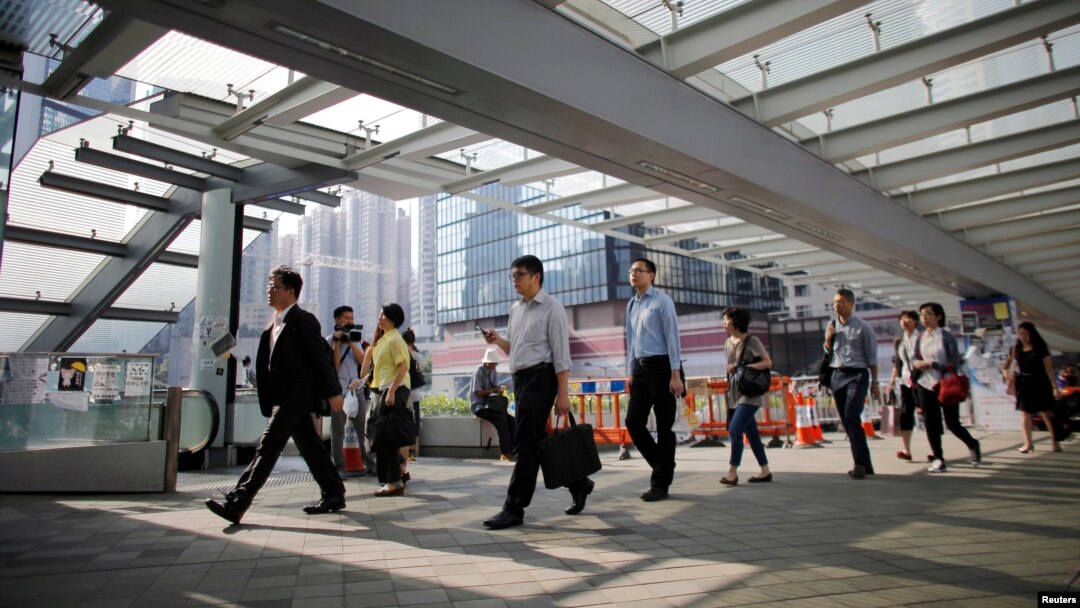Chinese wage crisis: Civil servants and government staff see pay cuts
Police resort to “distant fishing” to generate additional revenue, Chinese Communist party leader XI Jinping’s important directive regarding the car ramming incident in Zhuhai was barely issued when a string of violent attacks occurred across China. Over the past 2 days, incidents involving University students wielding Knives have been reported in Guangdong and Zhejiang provinces shocking the public. Chinese netizens have exclaimed that the Powder Keg has been ignited overseas political and economic commentators believe that China is a Tinder Box where even a small spark could ignite a massive Blaze. The CCP’s control is fundamentally rooted ininstilling fear among its citizens but when the people cease to fear the CCP it signals the complete failure of its governance model.
On November 16th a knife attack occurred at the Wuxi Institute of Arts and Technology in Yixing, Jiangsu Province local police confirmed that the incident resulted in eight deaths and 17 injuries. According to Radio free Asia on November 17th China has experienced three major deadly incidents in the past month that have shocked the world a stabbing at Beijing Zang Wankan number three primary school, the ramming attack at Zhuhai sports center and the knife attack at the Wuxi Institute of Arts and Technology. while CCP officials tirelessly proclaimed that China is the safest place in the world and Xi Jinping calls for severe punishment of the perpetrators indiscriminate attacks on civilians continue to occur across the country.
The notion that Chinese society’s Powder Keg has been ignited may not be an exaggeration even CCP civil servants once regarded as secure in their positions are struggling to keep their jobs let alone ordinary citizens. On October 16th the WeChat public account longyandayuan published an article recounting a conversation with a friend from Nanjing who lamented local Financial instability. The friend explained that last year’s goal for many areas was to guarantee 6 months of salaries aim for eight. This year it has been downgraded to guarantee 3 months aim for six in other words local governments are struggling to ensure just three months of salaries.
Civil servants and employees of public institutions in certain areas of Nanjing have gone unpaid for months the issue was only partially resolved when administrative orders forced inter-district borrowing to cover overdue wages, however there is still no solution for future funding. This problem extends beyond Nanjing across Jiangsu, Zhejiang, Guangdong China’s economic power houses and even the directly administered municipality of Tianjin fiscal exhaustion has led to delayed or reduced salaries for civil servants.
In Tianjin employees of certain government departments and public transportation groups have faced months of unpaid wages in some cities local governments have even borrowed money from temples to pay salaries. Multiple insiders within the system have confirmed that salary reductions began as early as last year. Schools, public institutions and some government agencies have eliminated weekend overtime pay and bonuses, this year the problem of unpaid wages has worsened. Guangdong province has significantly reduced pensions for retirees with cuts exceeding one third in some cases. This indicates that even China’s two wealthiest provinces each with a GDP exceeding 10 trillion Yuan are experiencing severe fiscal imbalances conditions are even worse in Inland provinces and regions in the Northwest and Northeast.
The article notes that the difficulty in paying salaries highlights an escalating local fiscal crisis this is not just a sign of a local debt crisis but also an additional burden on the already declining National economy. If even civil servants traditionally considered secure are facing income instability the underlying economic problems are undoubtedly severe. When civil servants cannot rely on their wages the situation for ordinary citizens becomes even more precarious what happens when there’s no money CCP local governments initially resort to squeezing private businesses and Wealthy individuals in their jurisdictions using excuses like tax arrears or unpaid fees to extract funds.
This practice often referred to as draining the pond to catch the fish leaves local private Enterprises and Wealthy individuals either struggling to survive or facing outright bankruptcy. When this approach no longer suffices the CCP’s local governments begin targeting wealthier provinces. Recently the term distant fishing has frequently appeared in Chinese media it refers to judicial institutions in one region apprehending private business owners or seizing the assets of Enterprises located in other provinces. According to a leaked internal report dated April 15th 2024 from Guangdong provincial Affairs briefing cities in the Pearl River delta such as Shenzhen Guangdong and Dongguan have become Hotspots for cross Province law enforcement.
The report states that public security bureaus in Hunan Province deployed over 1,600 police officers to Guangzhou to conduct a distant fishing operation against a subsidiary of Ejian Health Group. The original amount involved in the case was just over 600,000 Yuan yet Hunan investigators froze 64 company accounts amounting to 758 million Yuan. According to Ejian Health hundreds of employees have been interrogated dozens detained and numerous accounts either partially or fully Frozen with affected funds totalling billions of Yuan. This has left the company teetering on the brink of bankruptcy derailing its plans for a public listing. On November 9th the self-media account Lao Jo sharp insights commented that distant fishing is essentially robbery disguised as judicial action while China economic downturn has just begun and ordinary citizens have not yet risen in Rebellion local CCP governments are already fighting among themselves.












